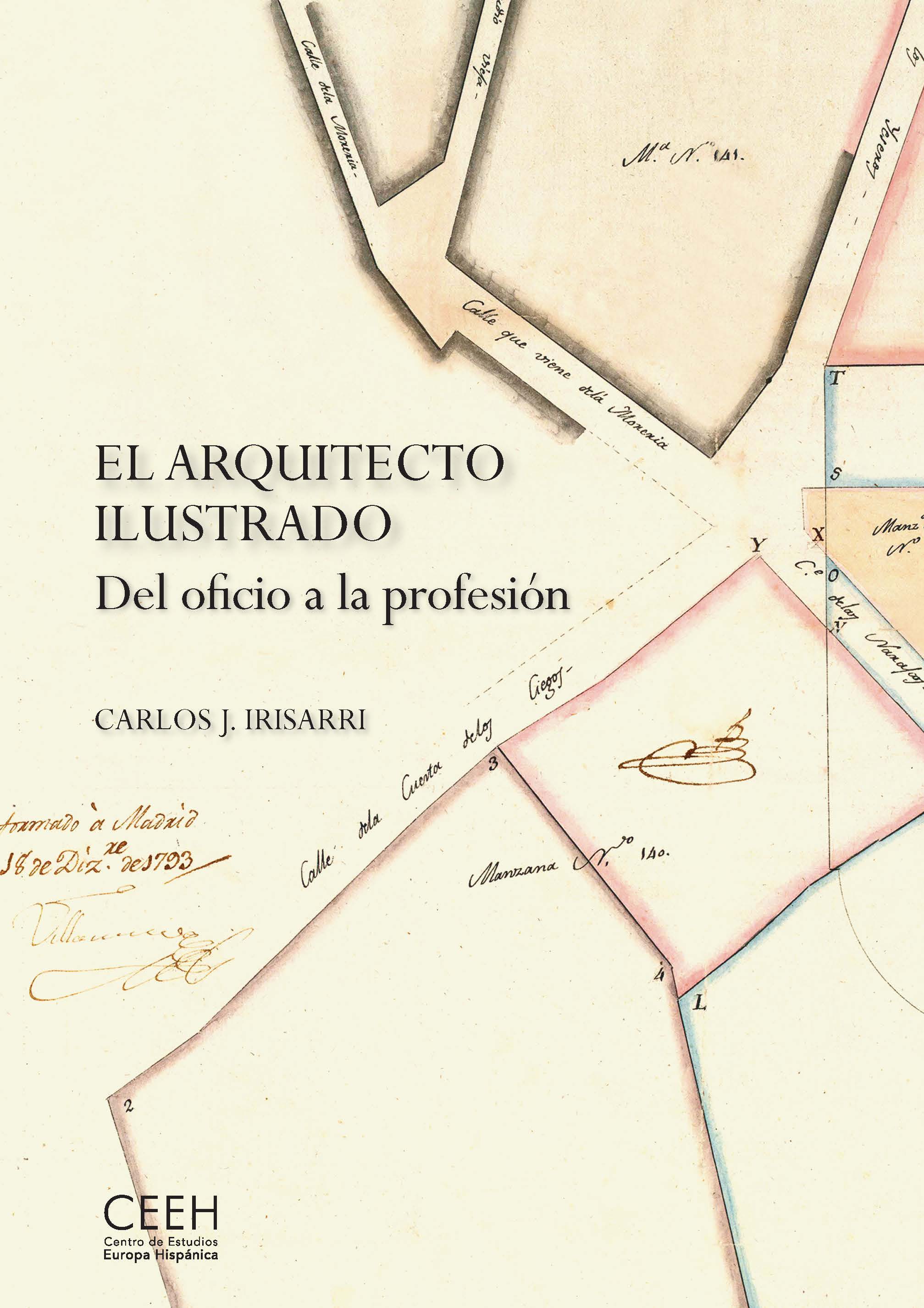Author
Carlos J. Irisarri
Characteristics
272 pages; 58 colour illustrations; flapped paperback; 17 x 24 cm
Publication
Spanish; presented by Miguel Lasso de la Vega; foreword by Carlos Sambricio; in association with Universidad Europea and Fundación Arquitectura COAM; 2022
ISBN
978-84-18760-05-1
Price
€27,89
Buy on our site and save 5% on this book until April 30
(coupon code: DÍA DEL LIBRO)
Given the huge number of books on the history of architecture, it is surprising that comparatively little attention has been paid to that of masters and clerks of works and architects, whose work is marked by the material, social and cultural circumstances in which it was performed. Carlos J. Irisarri helps fill this gap by surveying a key moment in the history of architects: their acknowledgement as professionals in the eighteenth century following a process that began in the medieval period when architecture was an occupation. The establishment of the first skills and regulations, corporativism, and the codification of the necessary knowhow and the system of learning involved in acquiring it spurred this transformation – which stemmed initially from a gradual change in patrons – and explain ways of acting and thinking that have survived to the present day. There are also considerations on the status of architects and their social awareness or professional etiquette in keeping with Enlightenment ideology.
The book examines the founding of the Real Academia de Bellas Artes de San Fernando; the vicissitudes of many Enlightenment architects in their efforts to train, qualify and practise; the codification of architectural design as an instrument; treatise writers’ recommendations for achieving excellence; and the authorities’ struggle to regulate the exclusivity of certain tasks, going against centuries of vested interests, which attests to their determination to use architecture to showcase a new regime. Unless all these factors are taken into account it is impossible to understand this transformation, which began in the Renaissance and led to the finest examples of Neoclassicism.
Carlos J. Irisarri has a PhD in Architecture and a master’s in Territorial Politics, and is a budding anthropologist. He is an associate lecturer at the Escuela de Arquitectura, Ingeniería y Diseño of the Universidad Europea in Madrid, and combines teaching with his activity in the real estate sector. His research is focused on the profession of architect, encompassing aspects such as history and sociology, conduct, deontology and ethics. Notable among his publications are El arquitecto práctico (2011, currently in its 3rd edition) and El arquitecto en perspectiva (2019), which received a special mention from the Unión Interprofesional de la Comunidad de Madrid.

